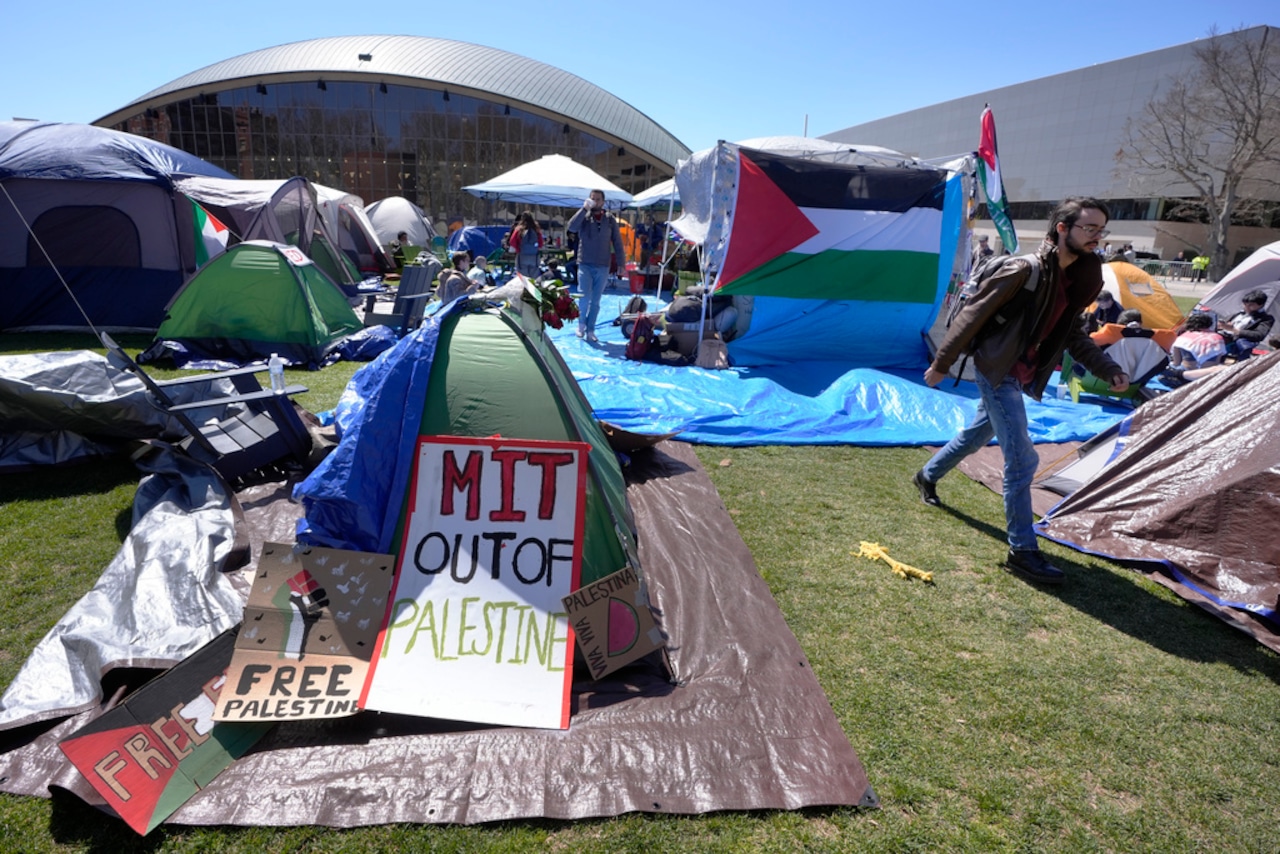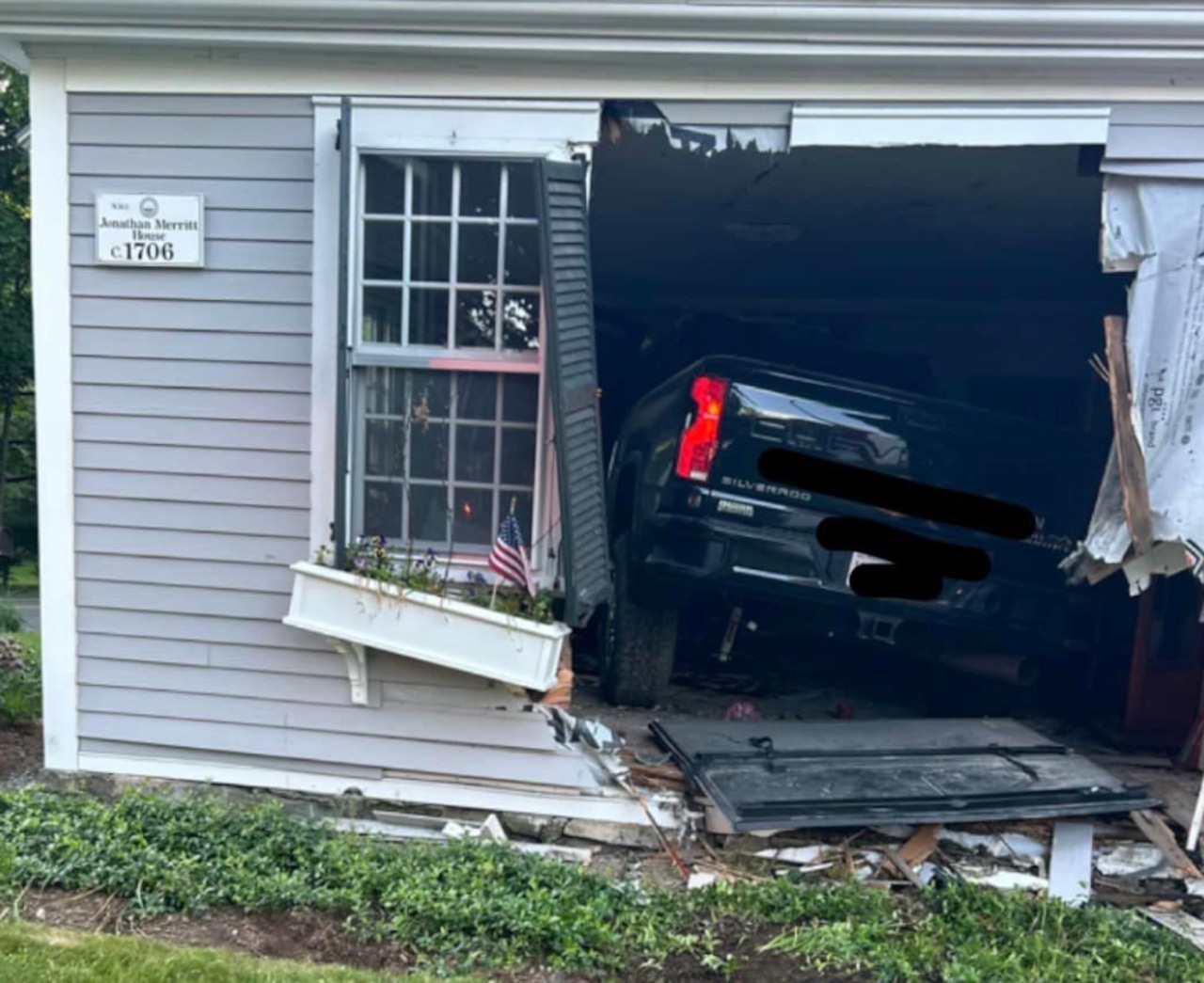
MIT President Sally Kornbluth on Saturday called for pro-Palestinian protesters to clear the encampment they had set up on the school’s campus, saying in a video posted to YouTube, “this particular form of expression needs to end soon” and that protesters were violating school policies.
Kornbluth was not the only school leader in the state to ask protesters to take down the tents they had set up at a university campus, as officials at Tufts University made a similar, if more forceful, ask on Sunday. More than 200 pro-Palestinian protestors were arrested on college campuses in Massachusetts last week — at both Emerson College and Northeastern University.
In the video, Kornbluth said the encampment has been a “clear violation” of campus policies governing registering and reserving space at the school “from the start.” And while she acknowledged that the protests have been peaceful, Kornbluth said some of the chants launched by protesters were perceived as calling for the elimination of the state of Israel and “more pointed chants” had been added, which she called “disturbing.”
“There’s a distinction between what we can say, what we have a right to say, and what we should say as members of one community,” Kornbluth said, adding that the pro-Palestinian movement was made more complex and “uniquely difficult” by the fact that two groups on campus were “painfully at odds with one another.”
The nationwide campus protests began as a response by some students to Israel’s offensive in Gaza after Hamas launched a deadly attack on southern Israel on Oct. 7.
Militants killed about 1,200 people, most of them civilians, and took roughly 250 hostages. Vowing to stamp out Hamas, Israel has killed more than 34,000 Palestinians in the Gaza Strip, according to the local health ministry.
Israel and its supporters have branded the university protests as antisemitic, while critics of Israel say it uses such allegations to silence opponents. Although some protesters have been caught on camera making antisemitic remarks or violent threats, organizers of the protests, some of whom are Jewish, say it is a peaceful movement aimed at defending Palestinian rights and protesting the war.
Kornbluth said university leaders have heard a range of views that she described as “irreconcilable” — that the school must take a side in the conflict and that it already has, that the encampment must be taken down and that it must be allowed to stay, that students should be disciplined and discipline should be avoided.
Protesters at the school who violated rules around time, manner, and place of protest will face disciplinary action from MIT, she said.
Without doing so directly, Kornbluth seemed to reject calls by protestors to reject funding from the Israeli military for research projects — one of the key demands from those who established the encampment, saying “I am not going to compromise the academic freedom of our faculty in any field of study.”
“Faculty routinely work with colleagues around the world, including in Israel,” Kornbluth said. “MIT faculty have the fundamental academic freedom to pursue funding for research of interest in their fields.”
While Kornbluth said college officials have not interfered with the encampment to preserve students’ right to free expression, she said it was “creating a potential magnet” for disruptive outside protesters and commandeering space reserved by others.
“Keeping the encampment safe and secure for this set of students is diverting hundreds of staff hours around the clock away from other essential duties,” she said. “We have a responsibility to the entire MIT community, and it is not possible to safely sustain this level of effort.”
“We are open to further discussion about the means of ending the encampment, but this particular form of expression needs to end soon,” Kornbluth concludes.






